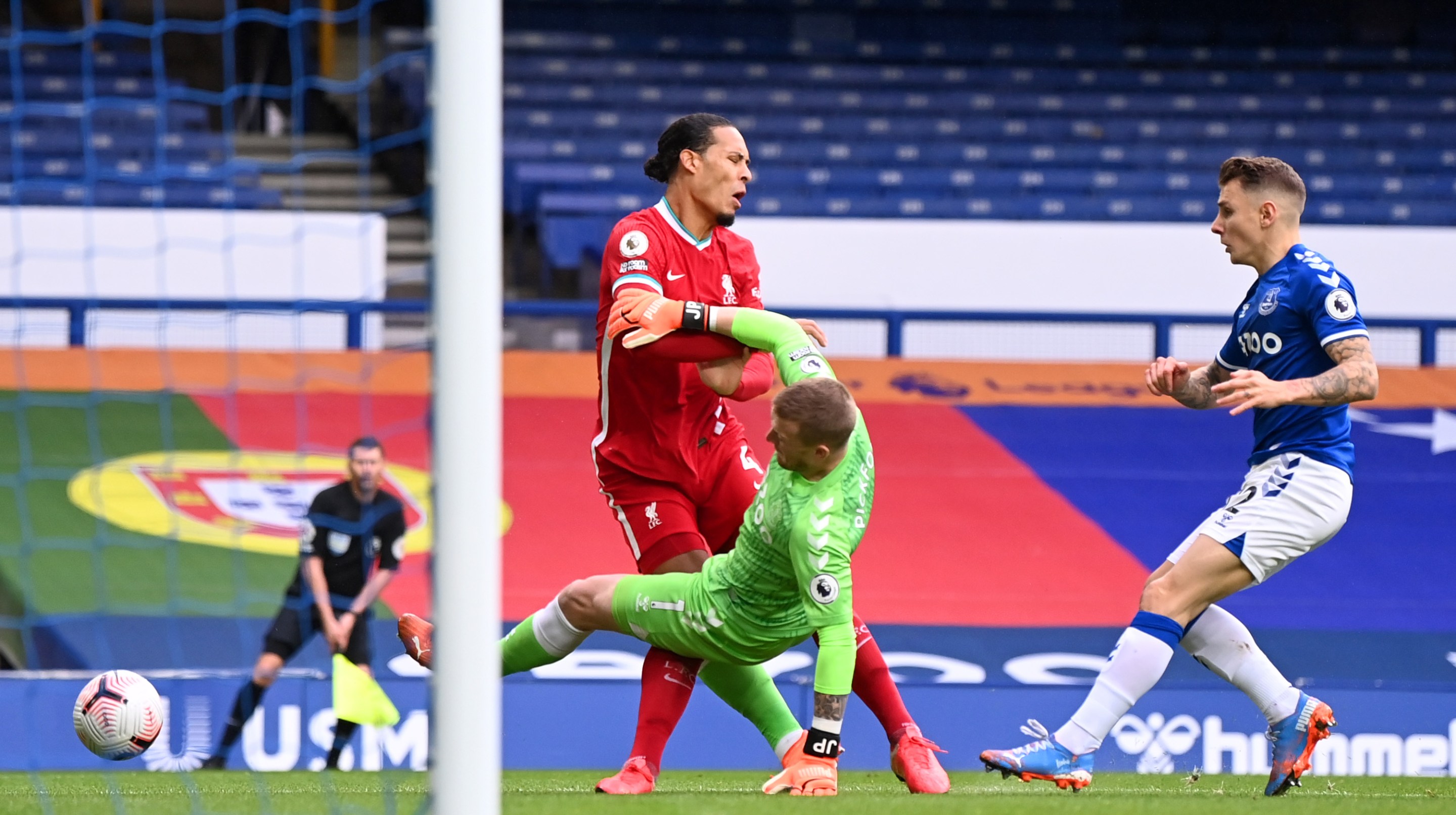The stakes of Saturday's Merseyside Derby were higher than any Liverpool-Everton match in recent memory. In spite of a shocking 7–2 defeat to Aston Villa last time out, the reigning champion Pool Boys maintain their status as title favorites. Meanwhile Everton entered the match as surprise league leaders, riding a soft schedule and a strong offseason to the top spot of a wacky early-season table. It's a shame, then, that the star of the well-played 2–2 draw wasn't James Rodríguez or Dominic Calvert-Lewin or Sadio Mané or Mohamed Salah, but instead was the dreaded Video Assistant Referee.
The only surprise about VAR marring yet another big Premier League match was that it somehow wasn't due to the terrible handball rule. This time, it was the offside rule, and the new rule tweak that makes shoulders no longer part of the arm, that left everyone—Liverpool fans especially—annoyed. For the match itself, the most consequential call was the post hoc offside that ruled out Jordan Henderson's apparent stoppage time winner thanks to Mané's shoulder:
The other big referee moment, the one whose after effects will condition the entire Premier League season, came at the start of the match. That was when Jordan Pickford clobbered Virgil van Dijk inside the box as the Liverpool defender was attacking an incoming cross. The ugly tackle looked like a certain red card and a penalty, only the referee had ruled van Dijk offside (a decision confirmed when VAR indicated that the Dutchman's shoulder was offside), and so no foul was given. Van Dijk had to be subbed off after Pickford's challenge, and reports have since revealed that the center back damaged his ACL on the play, which will keep him off the pitch for months.
Technically, both of the aforementioned offside calls were correct. Both Mané and van Dijk were indeed offside because of their shoulders, and because of a hyper specific rule about fouls, van Dijk being offside and making a play on the ball preempted Pickford's reckless tackle. And yet once again we see VAR "fixing" problems that weren't really problems, and making rulings that satisfy no one.
Who is served by VAR stopping play to draw up lines that rule out a great, game-winning goal because a guy was offside by an inch or two? What kind of undue advantage is gained there, and why not just defer to the linesmen who already get calls right with incredible accuracy (just look at the van Dijk offside for proof) in live time? Why does VAR keep pretending its offside calls are some objective determination when, because of the impossibility of freezing a frame at the precise instant a passer plays a ball, the alleged objectivity is completely fake? And what's even the point of having a review system if it rules out goals for the most marginal of reasons but can't bring any justice to an awful tackle like Pickford's? Is it at all clear to anyone other than rulebook scholars why VAR did not look at Pickford's challenge? Does any of this feel clearer or more fair than what came before?
The rules of any sport are supposed to incentivize the good, discourage the bad, and present a fair and consistent standard that supports the spirit of the game. Rather than help achieve any of that, VAR by and large just makes things more confusing and less satisfying by imposing an exactitude that is neither true nor in furtherance of the spirit of a sport that thrives on fluidity. So yes, by VAR's own stringent standard, it got the big calls right on Saturday. And that is precisely the problem.






